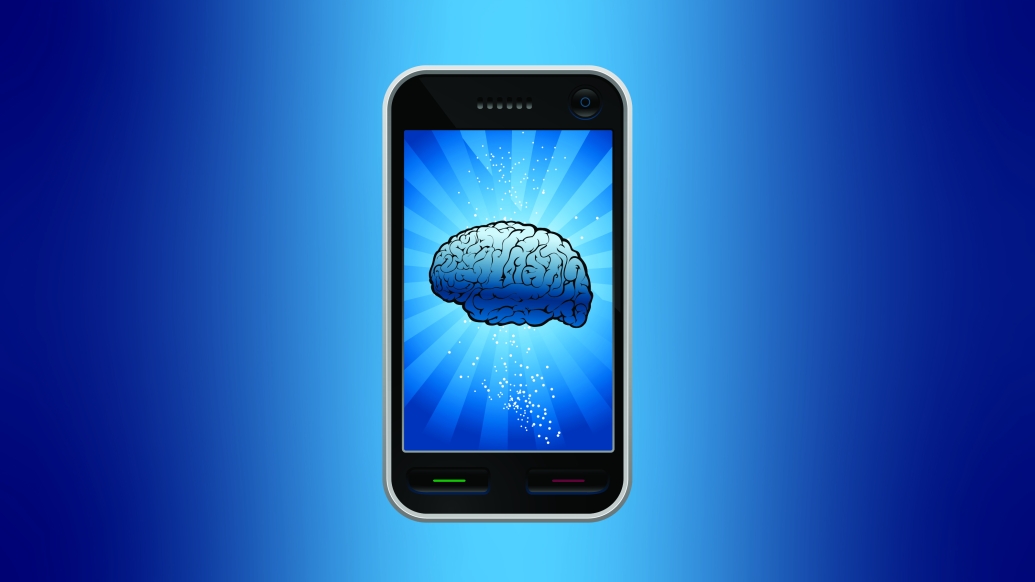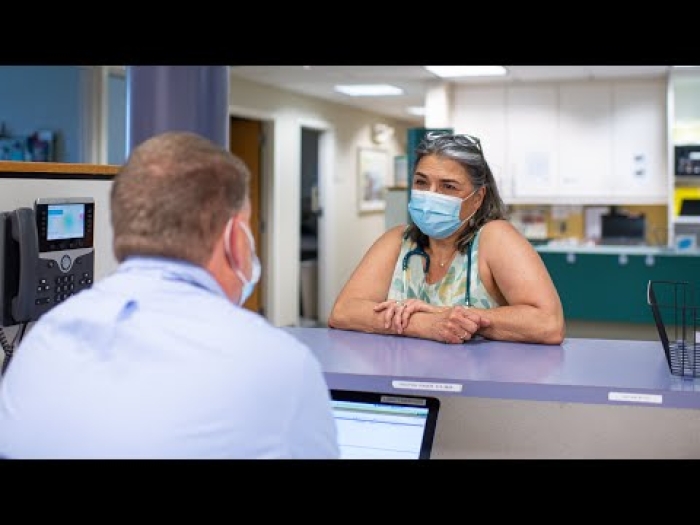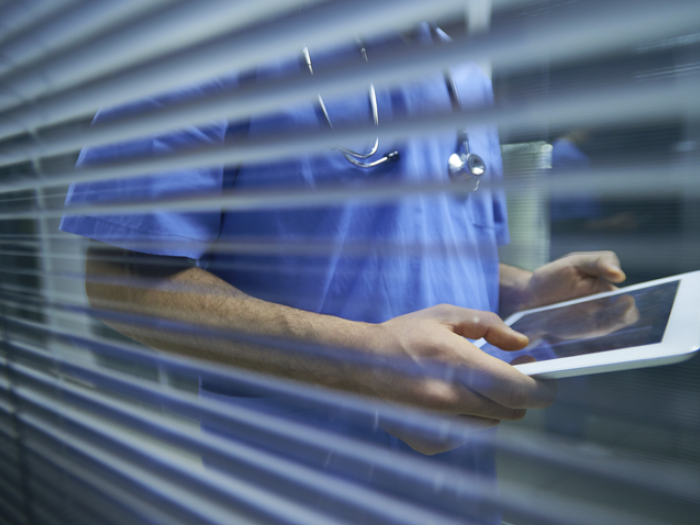Depression, anxiety and suicide risk dropped when patients awaiting an initial psychiatric appointment used smartphone apps to get CBT, mindfulness or encouragement prompts
11:00 AM
Author |

The recent surge in people seeking mental health care across the country has led to long wait times for first appointments with therapists and psychiatrists.
Now, a study is offering hope that, while they wait to get care, patients could still get some relief by using evidence-based smartphone apps and wearable devices to track sleep and activity.
The study shows that depression and anxiety symptoms, and suicidality, all decreased measurably when patients were assigned to mobile applications that incorporated mindfulness practices, cognitive-behavioral therapy skills, or prompts that encouraged mood-enhancing activities.
The research, conducted at Michigan Medicine, the University of Michigan’s academic medical center, is published in JAMA Network Open.
It involved just over 2,000 patients scheduled to get care in coming weeks from a mental health provider at outpatient U-M Health or U-M student clinics.
SEE ALSO: Irregular Sleep Connected to Bad Moods and Depression, Study Shows
Adam Horwitz, Ph.D., the U-M Medical School psychologist who is the paper’s lead author, called the results encouraging, with implications for individuals and clinics alike.
“Having this type of option, especially for people who are motivated enough to seek an appointment and wait for it, could be very valuable when providers have long wait lists,” said Horwitz, who is an assistant professor in the Department of Psychiatry.
“These individuals want to be doing something about their mental health but don’t yet have access, so this suggests that providing them with some sort of digital option when their motivation is already high, and they are ready to do something, could begin to make a difference.”
Combining app prompts and wearable device data
Nearly all the patients completed standardized mental health assessments both at the start of the study and after six weeks of using the app they had been randomly assigned to install on their smartphone.
All participants also wore a study-provided Fitbit or their own Fitbit or smartwatch, to track sleep and physical activity.
The study randomly assigned most participants to one of two commercial apps – Silvercloud, which is based on cognitive behavioral therapy principles, and Headspace, which coaches users in mindfulness techniques.
Both apps have been shown separately to help alleviate mental health symptoms, but have never been tested against one another.
Having this type of option, especially for people who are motivated enough to seek an appointment and wait for it, could be very valuable when providers have long wait lists."
-Adam Horwitz, Ph.D.
Some study participants were randomly assigned to receive a customized version of the study app called MyDataHelps, either alone or together with one of the commercial apps.
Those randomized to receive this app received positive encouraging prompts twice per day based on their activity tracker data – for example, applauding them for walking or getting a good amount of sleep, or suggesting a simple act to improve their mood.
Improvement in all groups
Surprisingly, no matter what group they were in, the participants’ scores on standard mental health scales changed for the better by the end of the study period.
At the start of the study, depression scores on average were just under 13 on the 27-point PHQ-9 scale; all groups dropped by two to three points by six weeks.
Scores on the 21-point GAD-7 anxiety scale dropped by 1.5 to 2 points across the board.
Meanwhile, scores on measures of protection against suicide risk increased slightly, with the most improvement among participants using Headspace.
Scores on the suicide risk measurement dropped slightly across the board, indicating lower risk for suicidal behavior.
Most of the study participants had their initial appointment with a U-M mental health provider before the end of that six-week period, but the drop in mental health scores was similar for those who hadn’t yet started professional treatment.
More research ahead
Horwitz notes that the newly published study helped inform the development of a much larger study called COMPASS based at U-M that just got $17.9 million in funding from the National Institute of Mental Health.
The COMPASS study will involve not only smartphone apps, wearable activity trackers and standardized mental health assessments, but also genetic tests and other types of data collection.
It will involve thousands of U-M Health and U-M student clinic patients who are waiting for their first mental health-related appointment.
It seeks to help researchers develop a more personalized approach to mental health care.
They hope to identify which characteristics make someone more likely to respond positively to different forms of treatment or support, so they can use this knowledge to reduce the time it takes to find the approach that helps each individual.
Future directions
Horwitz notes that people seeking mobile-based mental health support have many apps to choose from – and that most of those apps haven’t gotten scrutiny through objective research.
Headspace and Silvercloud have more objective evidence behind them than most of these apps, he notes.
He and his colleagues were surprised but encouraged to see improvement in the group receiving personalized feedback messages.
Part of the reason may have to do with the study population: people who were motivated to seek help for mental health concerns, had already been on a waiting list to get scheduled, and now had been scheduled and were waiting to be seen.
Because mental health conditions can wax and wane in their symptom severity, apps that support someone during an especially low mood or high anxiety time could be important for helping them endure the time until their first appointment.
Horwitz notes that the study participants’ clinical providers didn’t have access to their app data.
But, he says, this might be a potential option for clinics moving forward if patients want to grant that access by allowing their app to share a summary with their clinic.
Data from mental health apps could even potentially help providers or systems understand which patients need the most-intensive approaches to psychiatric care, and which might be able to do all right with less intensive care.
That could also improve the waiting list situation for all patients, he notes.
He likens this to a relay race.
“If we can use apps to give the patient a bit of momentum on understanding and managing their symptoms, even before they get to clinic, then perhaps that will help them get more out of therapy once they get to clinic and pass the baton from the app to a professional provider,” he said.
“The apps don’t have the same effect as therapy, but doing something while waiting is still important.”
In addition to Horwitz, the study’s authors are Elizabeth D. Mills, Ph.D., of the U-M Department of Anesthesiology, Srijan Sen, M.D., Ph.D., and Amy S.B. Bohnert, Ph.D. Sen, a professor of psychiatry, directs the U-M Eisenberg Family Depression Center and is a member of the Michigan Neuroscience Institute; Bohnert is co-director of the U-M Opioid Research Institute and a professor of anesthesiology. Bohnert and Sen are two of the three leaders of the COMPASS study.
Horwitz, Bohnert and Sen are members of the U-M Institute for Healthcare Policy and Innovation.
The study was funded by Precision Health at U-M and the Eisenberg Family Depression Center as well as the National Institute of Mental Health (MH131761).
Paper cited: “Comparative Effectiveness of Three Digital Interventions for Adults Seeking Psychiatric Services,” JAMA Network Open. DOI: 10.1001/jamanetworkopen.2024.22115
If you or someone you know is experiencing a mental health crisis, or at risk of self-harm or suicide, call or text the number 988 from any cell phone, or visit 988lifeline.org and use the chat function on the web. This is a national, free, 24/7 service that can help with an immediate crisis, and connect you to resources near you.
Sign up for Health Lab newsletters today. Get medical tips from top experts and learn about new scientific discoveries every week by subscribing to Health Lab’s two newsletters, Health & Wellness and Research & Innovation.
Sign up for the Health Lab Podcast: Add us on Spotify, Apple Podcasts or wherever you get you listen to your favorite shows.

Explore a variety of health care news & stories by visiting the Health Lab home page for more articles.

Department of Communication at Michigan Medicine

Want top health & research news weekly? Sign up for Health Lab’s newsletters today!





